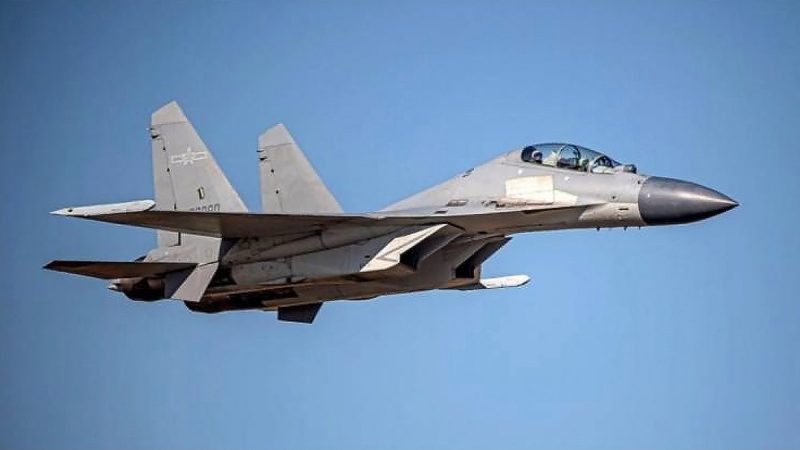China has conducted a jaw-dropping 180 intercepts against U.S. aircraft since the fall of 2021, according to the recently released Pentagon’s 2023 annual report on Chinese military power.
To protect the lives of U.S. service personnel and reaffirm their right to operate in international airspace, President Biden must confront President Xi on this issue during their tête-à-tête Wednesday on the margins of the Asia-Pacific Economic Cooperation Summit in San Fransisco.
These incidents are not isolated high jinks by maverick Chinese pilots. Far from it. The People’s Liberation Army operates under the tight leash of the Chinese Communist Party. This behavior is part of a larger political-military effort to intimidate the United States and its allies from operating in the Western Pacific.
China’s aerial intercepts are notable not just for their frequency, but also their hair-raising nature. Late last month, a Chinese jet fighter buzzed within 10 feet of one of our B-52 bombers flying in international airspace over the South China Seas.
That is less than a car length from a midair collision, in pitch darkness no less. In response, Indo-Pacific Command issued a statement, noting the ‘unsafe and unprofessional’ nature of the Chinese pilot.
If trespassers somehow managed to get that close to a B-52 parked on the tarmac, Air Force Security Forces would riddle them with lead. Yet when a supersonic Chinese jet screams within 10 feet of one of our lumbering bombers in international airspace, our military brass issues the PLA a polite scolding.
This is not the first time the Pentagon has publicly raised the issue of unsafe Chinese aerial behavior. On June 2, Secretary of Defense Lloyd Austin gave a major speech in Singapore, noting that China ‘continues to conduct an alarming number of risky intercepts of U.S. and allied aircraft flying lawfully in international airspace.’
China’s bad behavior continues, so the secretary’s point evidently fell upon deaf ears. PLA buzzing continues against not only the United States, but its close allies as well. Two weeks ago, Chinese fighters fired flares right in the path of a Canadian helicopter operating in the South China Sea, forcing it to take evasive action.
The close encounters continue not only in the air, but also at sea.
Just last week, Chinese Coast Guard ships fired water cannons at Philippine Coast Guard vessels in the Spratley Islands, the latest of many coercive activities aimed at Manila. In fact, all this bullying continues even though China signed a detailed agreement with the U.S., way back in 2014, to avoid unsafe intercepts in the air and at sea.
China’s high-altitude antics are dangerous on several levels.
For starters, the intercepts put American and allied lives at risk. More broadly, they reinforce the image of weakness, feeding the narrative that President Biden is unwilling to protect American military personnel in harm’s way, whether they are flying routine missions over the Western Pacific or bunkered on Middle East bases.
This behavior also raises the odds of a midair collision involving U.S. and Chinese aircraft. This would spark a crisis in the blink of an eye, as happened in 2001, just four months into George W. Bush’s young presidency.
A Chinese J-8 fighter slammed into an EP-3 reconnaissance aircraft in international airspace, which forced the American plane to make an emergency landing on Hainan Island. China then detained 24 of our crew members for 11 days, releasing them only after the Bush administration issued a quasi-apology.
The stakes are higher now. China is much stronger militarily than it was in 2001, and the United States is currently straining to fund two wars overseas.
In October, the Pentagon released a lengthy scroll of photos and videos documenting dangerous Chinese intercepts. Shining the spotlight on bullying behavior is always a good step, but it is not enough. Biden must raise this issue with Xi in San Francisco.
If sweet reason and stern words fail to sway, the Biden administration should authorize F-35 fighter escorts of its unarmed reconnaissance planes until China gets the message – and backs off.

